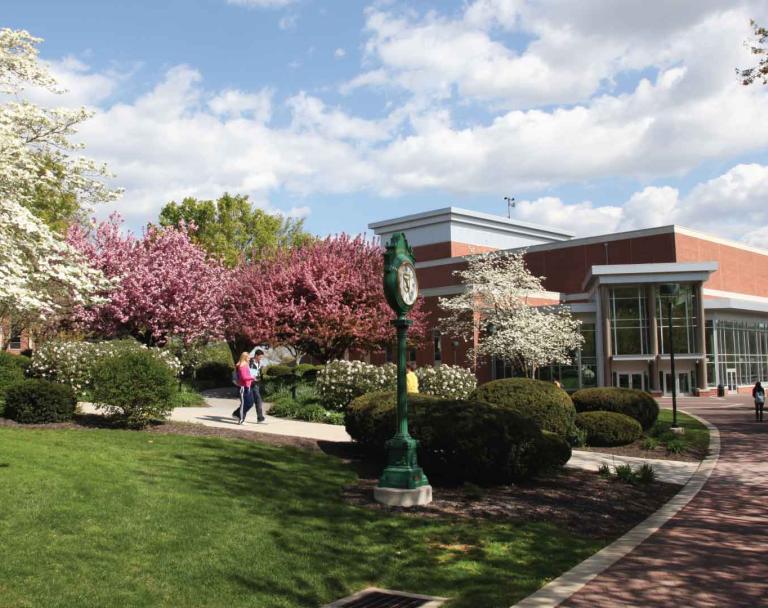The York Review

The York Review helps writers, non-writers become part of campus culture
How can a college student who wants to be a writer or pursue a related field find out if it’s really the right career? For Austin Wolfe ’17, and many other York College of Pennsylvania students over the past three decades, the answer is to get involved with The York Review, the College’s literary magazine.
“I was passionate about creative writing,” Wolfe says today, “but I didn’t know how this would translate into a career.” Helping students learn how their writing passion can become a career is accomplished in large part because the Review is a student-run publication.
“I give advice and get resources, but I don’t tell students what to do,” says Assistant Professor of Creative Writing and Review advisor Travis Kurowski. “Students run this. York College doesn’t exercise editorial control.”
Getting published
During his time at York College, Wolfe served as editor and later became publisher of the magazine his senior year, all while writing pieces for publication. He believes having students run all aspects of the operation is crucial.
“I learned how to work on a creative team, work toward a common goal,” says Wolfe, now a digital marketer in New York City. “I learned to maintain professional communications, manage a workload, production calendar, and expectations, all part of what I do in digital marketing.”
Wolfe also helped create the digital magazine, learning to make online articles complement the print version, as well as podcasts and social media outlets, keeping up with the times.
“Getting something published is so important for students getting started in writing,” Kurowski says. “This is a validation for students that may lead to other publications, getting an agent, and so on.”
An outlet for students
Learning the practical aspects of the writing and communications business is important, but so is giving students an outlet to discuss what they are experiencing on campus. “Literary magazines on campuses are important student voices and outlets for students,” Kurowski says.
Articles in the Review range from stories about campus life, poetry, and national politics.
Magazines have been part of American culture since the 1700s, Kurowski says, and it’s important for students to handle and understand all parts of a publication. “It’s awesome to watch 18- to-22-year-old students think about issues of content warnings, diversity, and censorship.”
Benefiting other majors, too
While student writers have gone on to become publishers and novelists, Kurowski says he also consciously recruits students who aren’t writing or communication majors. “I’ve brought in graphic designers and business majors,” he notes. “I have a chemistry major on staff, and civil engineering students are publishing stories.”
Kurowski says working on the publication can help science and business majors understand how they need to communicate with people in their professions or the public. Nursing and engineering students, for example, “are reminded how important communication is to understand the needs of a patient or what a client needs in an architectural project.”
Laying the framework
Kurowski believes the magazine helps students create part of the campus culture, and Wolfe agrees. “I had no idea there was a community of creative writers on campus,” he says, “and that I fit right in.”
The magazine also made Wolfe realize he is part of—and helping create—a larger community beyond campus. “We got a stand at First Fridays, put on events at Marketview Arts and Central Market,” he says.
This community integration, he says, is proving vital in his career. Working with The York Review introduced him to the business community, as well as networking and interacting with people from all different walks of life in order to participate in a community. “This laid the framework for my being able to participate in city life,” he says. “This is New York life.”

